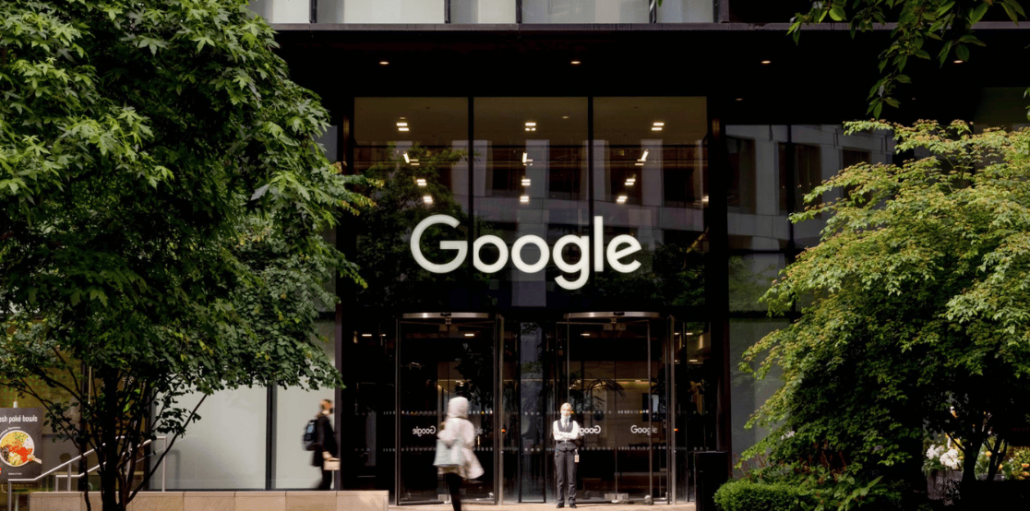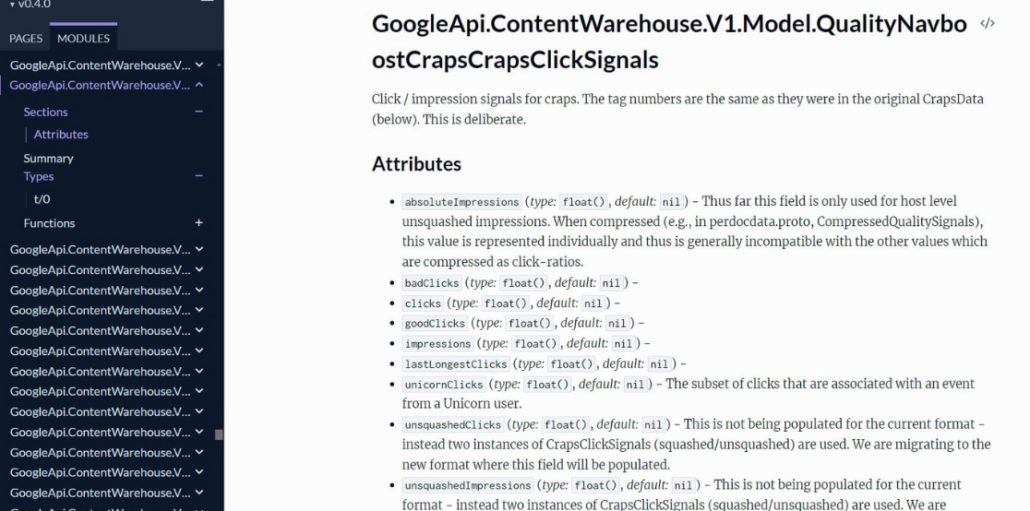Data breach at Google exposes operation of algorithm & ranking factors
In a recent data breach at Google, thousands of APIs used in ranking Web sites have become public. Interestingly, much of the information from this document directly contradicts what Google has publicly communicated. Let's look at what the key findings are from the leaked documents and how they may be relevant to your business if you are in the business of marketing and want more (organic) traffic to your website.

Search engine optimization (SEO)
One of the biggest secrets within marketing is how search engines like Google use their algorithm to rank websites in search results. When you do optimizations for this, it is called search engine optimization, or SEO.
Through much experimentation and testing over time, we have gotten a good idea of what works, but it always remained based on assumptions. Virtually no one (even most employees within Google) knew what the algorithm was looking at. Until now.
Google turns out not to be entirely honest
In the past, Google has made many statements about which factors are important for optimizations. However, many marketers were skeptical of these statements, and rightly so, it now appears. The leaked documents show that Google has not always been honest. Optimizations that they claimed would not work actually turn out to be important ranking factors.
What does the document say?
The leaked document is highly technical, discussing more than 200 factors that can affect Web site rankings. These range from the quality of content, to technical optimizations and user experience. It further reveals that Google collects data from users (including through Chrome and navigation within Google), to use as input.

Want to read some of the documents yourself? Then check out the following pages: Api reference, data & click signals.
How did the data become public?
The data comes from the developer platform GitHub. Google notes the APIs they use here. APIs are a piece of code that allow applications to exchange information with each other. Usually, information that Google does not want made public is put private. However, sometimes employees forget to do this. When that happens, this data can be copied and distributed.
No response from Google
We initially learned from several sources that Google had not released an official statement or response about the leak, including not confirming whether the information was real or fake news. This lack of communication left much room for speculation about the authenticity of the leaked data.
However, Google has since put out a statement. Google warns against making incorrect assumptions based on information that has been taken out of context, is out of date or incomplete. Google does not want to comment on the specific elements from the leaked documents to avoid manipulation of their algorithm. They stress that it would be incorrect to assume the data is complete, relevant or current.
This emphasizes the importance of building a strong brand. The focus should remain on building a good Web site that provides a fine user experience and good content.
What can we learn from the Google data breach?
User behavior
The leaked information emphasizes the importance of how a user behaves on your Web site. Key elements are:
- How long a visitor stays on the page.
- Whether the visitor clicks back and clicks on another search result.
- Whether the visitor is "satisfied."
This indicates that the quality of your content and the user experience on your Web site are crucial. If a visitor goes to look around but is not actually of much use to your information and quickly clicks away, this has a negative impact.
On-page SEO / Content
- It is important to Google that authors who publish on your website are experts on the topics they write about. This principle, known as EEAT (Expertise, Experience, Authoritativeness & Trustworthiness), was previously known in the marketing industry through Google algorithm updates.
- Having bad content on parts of your site can impact your entire website.
- Google looks at the "freshness" of content. This means that you want to update content when it is no longer relevant or outdated. For this, Google looks at the content on the page, the URL and the edit date.
- Another important factor they Google looks at is "titlematchScore," this indicates that page titles are still relevant. Here, it is important that this page title matches a user's search intent.
We recommend ensuring that your website provides a good user experience according to best practices, such as fast load times, mobile-friendliness and clear navigation, and that you publish content that matches the user's search intent. This will lead to better quality traffic, which will ultimately improve your search rankings in Google.
Backlinks
Backlinks continue to play an important role in Google's ranking process. Despite the view that naturally obtaining links to your website or link building would be redundant, the paper shows that diversity of links with high authority is still very important. Anchor text of links (the clickable text in a link) also plays a role here. Both internal anchor text (links to other pages within your own site) and external anchor text (links from other domains to your website) are important.
Google also further tracks domain registration data (think registrar, domain purchase date and more).
The importance of a strong brand
One of the biggest insights from Google's data breach is the importance of a strong brand. Want to increase your organic search results and traffic? Then focus on building a popular brand that people search for, both in Google and beyond.
An important channel beyond Google for this is social media. Recent updates have made it easier for smaller businesses and brands to get more visibility, too. We wrote an article about it where you can find more information.
Whitelist
This point is related to having a strong brand. Indeed, what we see is that during elections and the COVID period, among others, Google gave certain websites priority in search results. This means that well-known and trusted websites such as major news organizations and official health authorities were given higher visibility.
Some sites are excluded from certain algorithm updates because they are on a whitelist, so they did not experience a drop in traffic when normally they might have. This highlights the importance of building a strong brand identity and authority in your niche.
Conclusion
The leaked document offers valuable insights into how Google's algorithm analyzes websites and incorporates them into its index. However, there is no way to prove whether every API feature leaked is currently being used as a ranking factor within Google.
But at least for businesses, this means that it is important to have a good SEO strategy that focuses on high-quality content, a good user experience and building a strong domain authority. In addition, building a strong brand that is visible on many relevant online channels is essential to increase organic traffic.
Would you like help with your content or SEO strategy? Then contact us with no obligation. We would be happy to help you further.







